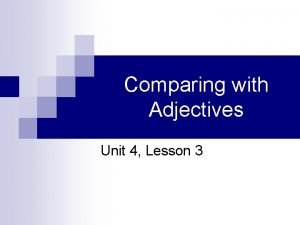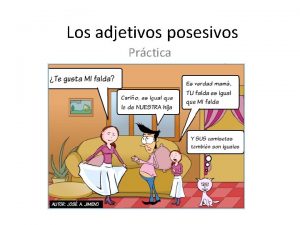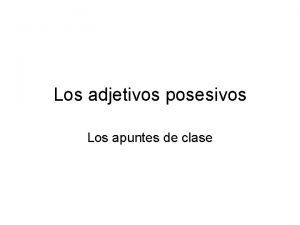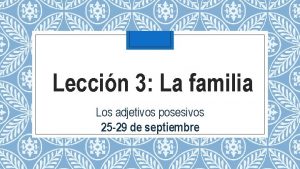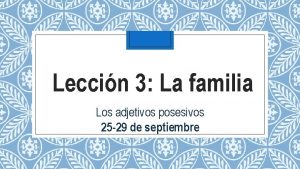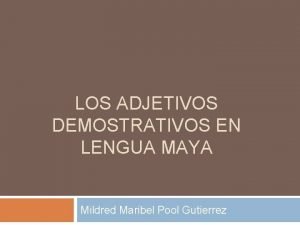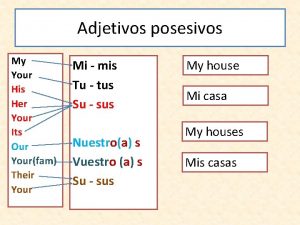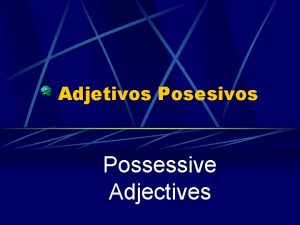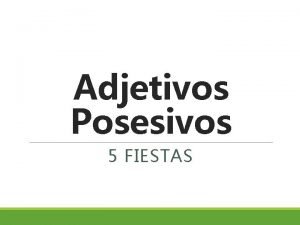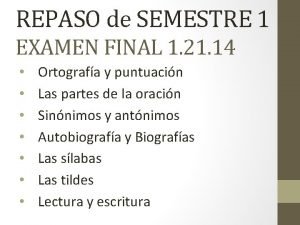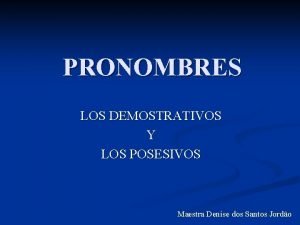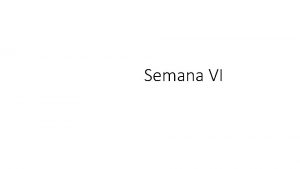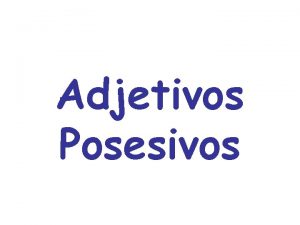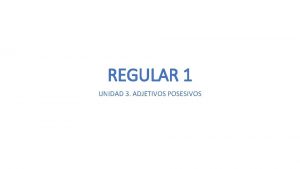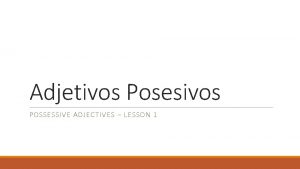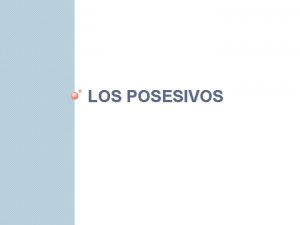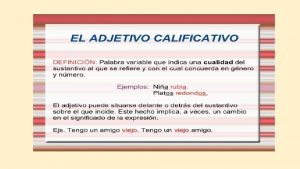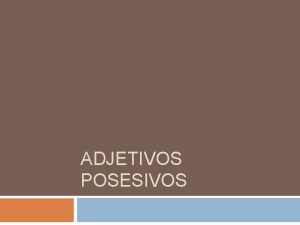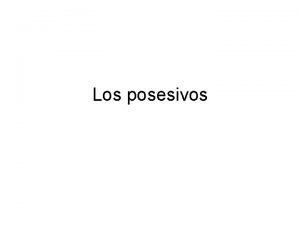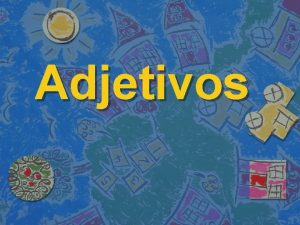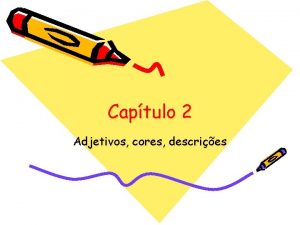Los Adjetivos Posesivos Mi casa es su casa













- Slides: 13

Los Adjetivos Posesivos Mi casa es su casa…

Possessive Adjectives There are two type of possessive adjectives: short & long (to be learned this year) n Because they are adjectives they must agree in… n GENDER & NUMBER w/ the THEY DESCRIBE USUALLY adjectives go. NOUN _____ the noun do they modify. usually. AFTER Where adjectives go in relation to n However, place these(ie; BEFORE the noun they modify? blue eyes, red they etc. ) describe book, n n My cousins = mis primos

Possessive Adjectives, con’t. My— Mi(s) Our— Nuestro(a)(s) Vuestro(a)(s) Your (fam)— Tu(s)Your guys’— His— Their— Her— Su(s) Your (form)— Your all’s— n Only those two base possessives that end in an “-o” must be made to agree in gender; the others are gender neutral

The Possessive “De” n If you want to clarify who possesses a specific object you use the following formula: n n Article + object + de + person/place/thing This is the equivalent to the “ ‘s ” in English

Algunos Problemas n 1. 2. 3. 4. 5. 6. 7. 8. Write in Spanish Our games Ana’s presents Your (fam) flowers My cup Their bananas Your (form) camera Carlos’ stepmother Our photographs Nuestros partidos Los regalos de Ana Tus flores Mi taza Sus plátanos Su cámara La madrastra de Carlos Nuestras fotos

Los Interrogativos The 5 Ws +

Question Words n n n ¿Qué? -- What? n ¿Cómo? -- How? n ¿Quién(es)? -- Who(m)? n ¿Con quién? -With whom? n ¿Dónde? -- Where? n ¿Cuántos(as)? - How many? n ¿Cuánto(a)? - How much? ¿Adónde? -- To where? ¿De dónde? - From where? ¿Cuál? -- Which/What? ¿Por qué? -- Why? ¿Cuándo? -- When?

¡CUIDADO! ALL interrogative words have accents! n Each interrogative word must have the upside down question mark (¿) preceding it n

Forming a Question n Questions may take 2 forms in Spanish n First, you can create a question by raising your voice at the end of a statement n Tengo la clase de español sexta hora. n VS. ¿Tengo la clase de español sexta hora? Hear the difference?

¡LA CANCIÓN! (jingle bells tune) ¿Cuándo? When? , ¿cómo? How? ¿Cuánto? is How much? ¿Dónde? Where? ¿Por qué? Why? Porque is because. ¿Cuál? is which? ¿Qué? Is what? ¿Quién? is who or whom? ¿A qué hora? At what time? ¿A dónde? Is where to?

Forming a Question, con’t. n You can also form a question with one of the many interrogative words we just reviewed n Begin with the interrogative word n n Add the verb n n ¿De dónde… ¿De dónde es… Place the subject at the end of the sentence n ¿De dónde es Carlos?

Algunos Problemas n 1. 2. 3. 4. 5. Translate to Spanish Where are you from? ¿De dónde eres tú? Who is the art teacher? ¿Quién es el/la profesor, -a de arte? When does she study? ¿Cuándo estudia ella? Why do we write stories? ¿Por qué ecribimos cuentos nosotros? Who are they? ¿Quiénes son ellos?

Más Problemas n 1. 2. 3. 4. 5. Answer the questions (in Spanish) ¿Cuántas clases tienes tú? ¿Qué clase es tu favorita? ¿Cómo mantienes la salud tú? ¿Quién es tu mejor amigo(a)? ¿Cuándo celebras tu cumpleaños?
 Los adjetivos y pronombres posesivos
Los adjetivos y pronombres posesivos Adding er
Adding er En blanco
En blanco Cual es la funcion de los adjetivos posesivos
Cual es la funcion de los adjetivos posesivos Adjetivos posesivos
Adjetivos posesivos Adjetivos posesivos
Adjetivos posesivos Verbo comer en pasado
Verbo comer en pasado Pronombres posesivos en maya
Pronombres posesivos en maya Her/his
Her/his Posessive adjectives
Posessive adjectives (our) primos son canadienses.
(our) primos son canadienses. 5 adjetivos de una fiesta
5 adjetivos de una fiesta Significado de bae
Significado de bae Pronombre de maestra
Pronombre de maestra

